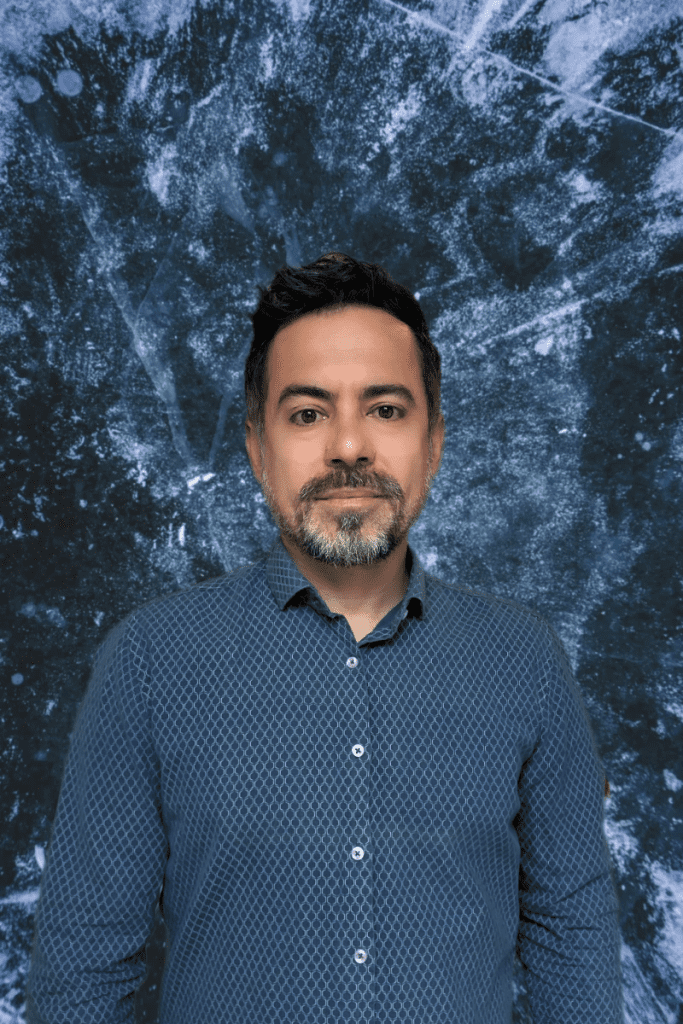Student Portraits
March 9, 2022
IVADO Student Portraits – Selçuk Güven
Our “IVADO Student Portraits” initiative consists of meeting students from our community to share their backgrounds, motivations and ambitions!
We sat down with Selçuk Güven, 2019 laureate of our IVADO Entrepreneur Postdoc Fellowships, assistant professor at the École d’orthophonie et d’audiologie de la Faculté de médecine (Université de Montréal) and researcher at CHU Sainte-Justine.

- How did IVADO become part of your journey?
I trained as a speech therapist and I also studied machine learning (ML). While doing my postdoc at McGill University, I had the idea of introducing ML approaches into my field. So I developed a research and innovation project around the use of artificial intelligence (AI) algorithms for diagnosis of speech and language disorders, and requested IVADO Entrepreneur Postdoc funding, which I was granted.
- What’s your takeaway from your experience with IVADO?
Well, when my project got underway, it also happened to be right at the start of the pandemic, so it was a very unfortunate beginning for me. As you can imagine, it led to significant delays with certain things; for example, the data-collection phase of the project. Everything pivoted to virtual mode, though, and I continued my learning. I was able to access training on various aspects including digital intelligence and innovation. Plus, my mentor at IVADO provided clear advice and assistance with various aspects of the project. Overall, I think my expectations with respect to this training were met in spite of the health crisis.
- Is there something in particular that you missed out on at the time of your IVADO experience that you could bring to the table today?
I would say that if I had an opportunity for a do-over, I would try to reach out to more and more people and take advantage of IVADO’s extensive industry and academic network as well as its resources. That’s something really special about IVADO, I think, on top of many other aspects.
- What does your work today involve?
I am currently an assistant professor at the Université de Montréal School of Speech-Language Pathology and Audiology, and I’m pursuing my entrepreneurial journey with my startup LinguAI. In other words, I’m a researcher as well as an innovator—talk about a dream job, right?
- What qualities are useful to you today for navigating the context created by the health crisis and the workplace changes it has brought about?
Well, I think this health crisis has clearly shown that people can still be productive (maybe even more so) without being physically present at the office. I’ve also realized the importance of mental health and of interacting with others, both friends and family. So I consider physical and mental well-being—not only for myself, but also for my teammates and students—to be even more important than before.
I also feel that the world has grown smaller for everyone, and that people are even more accessible now. The changes have helped me expand my network and work with people in other countries. For example, when a number of training courses and conferences went virtual last year, that helped me set up new collaborations in various parts of the world.
- Do your current duties echo your academic journey, or do you see a significant break between what you learned in university and your day-to-day professional situation?
I think that all of my experiences and training are a perfect fit, like the pieces of a jigsaw puzzle, especially in the wake of my IVADO postdoc. As we all know, digital intelligence has sparked a revolution in all fields of medicine including speech therapy. Likewise, technology and innovation transfer are playing increasingly important roles. Doing training courses in AI and innovation powered by digital intelligence after my traditional instruction in speech therapy, for example, was very useful to me. And I’m applying pretty much this same mindset to what I’m doing now: conducting research that can potentially lead to an innovation in the health field.
- If you could time-travel to five years ago, what advice would you have for yourself?
First of all, spend more time with your family and friends! Second, invest more time in learning things related to digital intelligence. Finally, don’t be afraid to take more risks, because even if you fail, that leads to the best teachings.
- Is there a single event, or someone you met, or something else that has proven decisive in your career orientation process?
There are a lot of events and encounters that left a mark along my career path, but I think that the Entrepreneurship Centre at Université de Montréal played a special role in my journey; it helped me a great deal in finding my way.
- If you were asked to put a team together in the years to come, what qualities would you look for when recruiting your future collaborators?
I would look for people committed to the same goal and who have the same kind of passion. Those would be the most important aspects I would want to see in my future collaborators.
- Are there any inspiring resources that you’d like to share with students in AI and related fields?
I grew up reading books by Isaac Asimov and Arthur C. Clarke and I still find them very inspiring, especially Asimov’s Robot series and his short story Franchise, and Clarke’s Profiles of the Future. Outside of those works, I would recommend a very realistic book on AI by Judea Pearl, The Book of Why.
- What is/are your next career objective(s)?
I plan to continue doing what I love most: research and innovation. I’d also like to develop my collaborations with various industrial partners. Plus, I’m currently seeking to expand my research lab, and am ready to welcome students who share the same passion as me to develop more innovations that will harness artificial intelligence to help people with speech and language disorders, and in so doing make their lives easier.